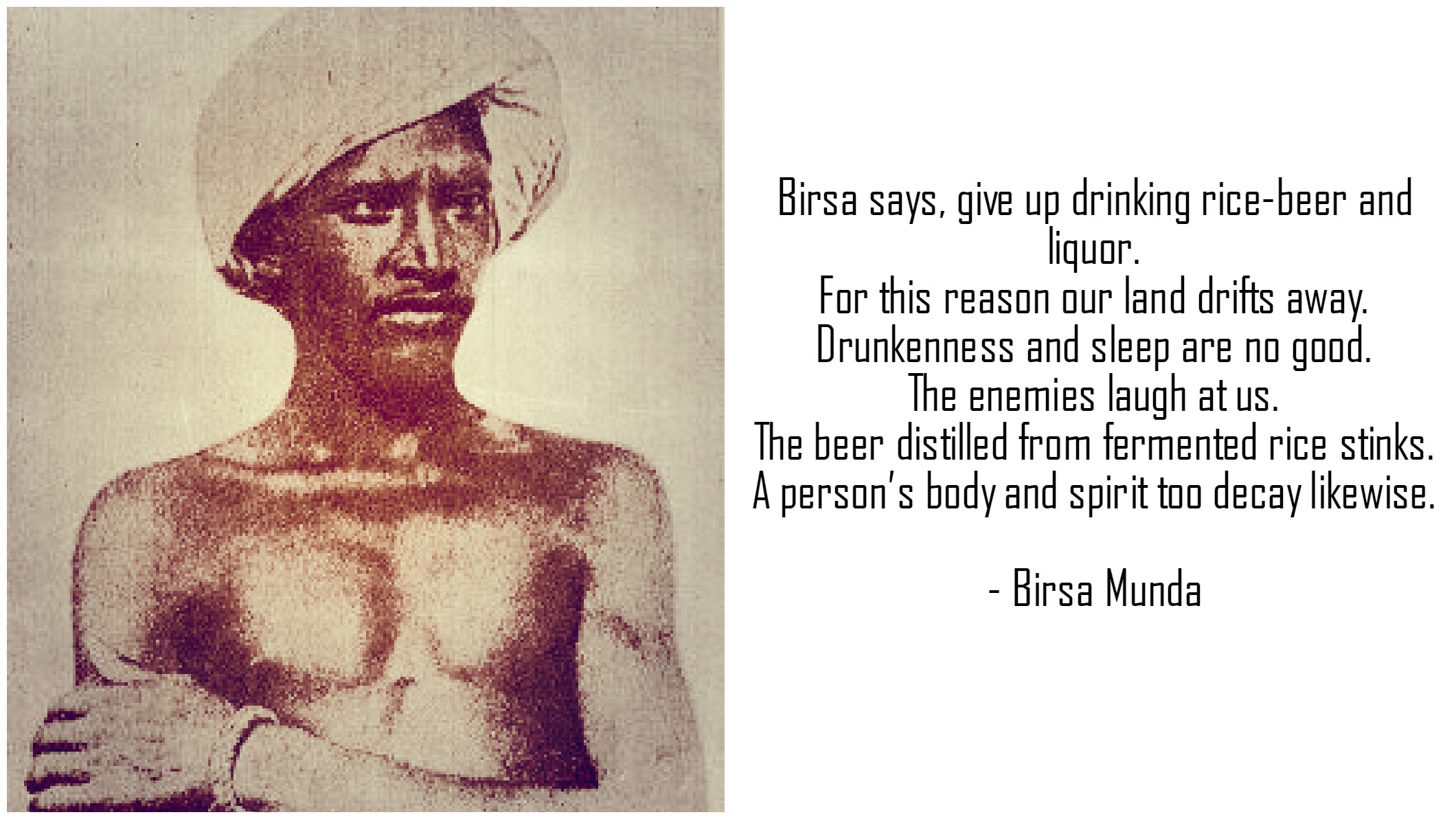Also known as a tribal martyr, Birsa Munda fought hard against the transformation of the tribal agrarian system into feudal state, by the British, which had led to the alienation of the lands held by the tribal. Though he was only 25 years-old, he influenced many tribal people by arousing their mind-set to assert their rights on their land.
- Birsa Munda was born on a Thursday and was named after the day of his birth according to the Munda custom
- Many folk songs have been made to celebrate the life of the great warrior
- According to folk songs, he used to play in sand and dust with his friends.
- He was an expert in playing the flute and used to carry an instrument made from pumpkin
- He was very sharp in studies
- Birsa converted to Christianity to join German Mission School since it was compulsory to convert to Christianity to join the school and was renamed as Birsa David, which he later changed to Birsa Daud
- When he was in school, the German and Roman Catholic Christian agitation was at its peak. This made his father, Sugana Munda, withdraw his son from the school
- The daughter of Mathura Muda of Koensar and the wife of Jaga Munda of Jiuri insisted on becoming wives of Birsa
- Birsa Munda started to propagate the principles of Hindu religion and advised converted tribal people to read their original religious system thoroughly. He became such an important figure that tribal people used to seek his blessings
- He was valued as a god by his followers
- His birth anniversary, November 15, is still celebrated by tribal people in Karnataka. Official functions take place at his Samadhi Sthal in the capital of Jharkhand
- Many organisations have been named after him such as Birsa Munda Airport Ranchi, Birsa Institute of Technology Sindri, Birsa Munda Vanvasi Chattravas, Sidho Kanho Birsha University, Purulia, and Birsa Agricultural University
Munda died of cholera on June 9, 1900. Although it was said that he did not show symptoms of cholera while he was in jail, the British government had declared that he died of cholera.

